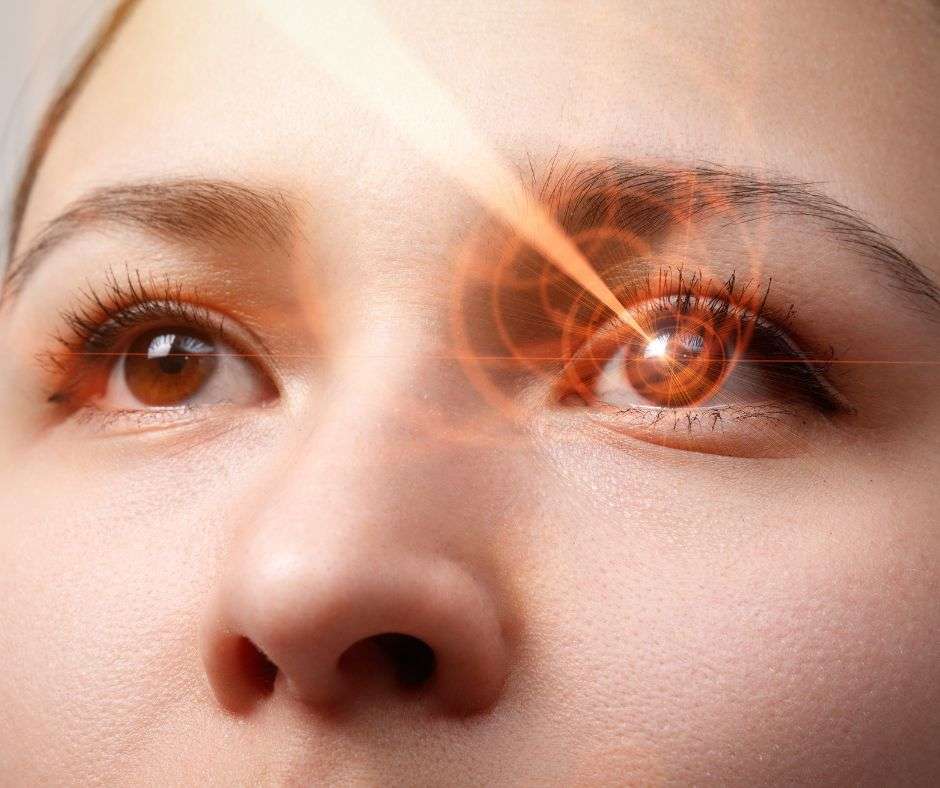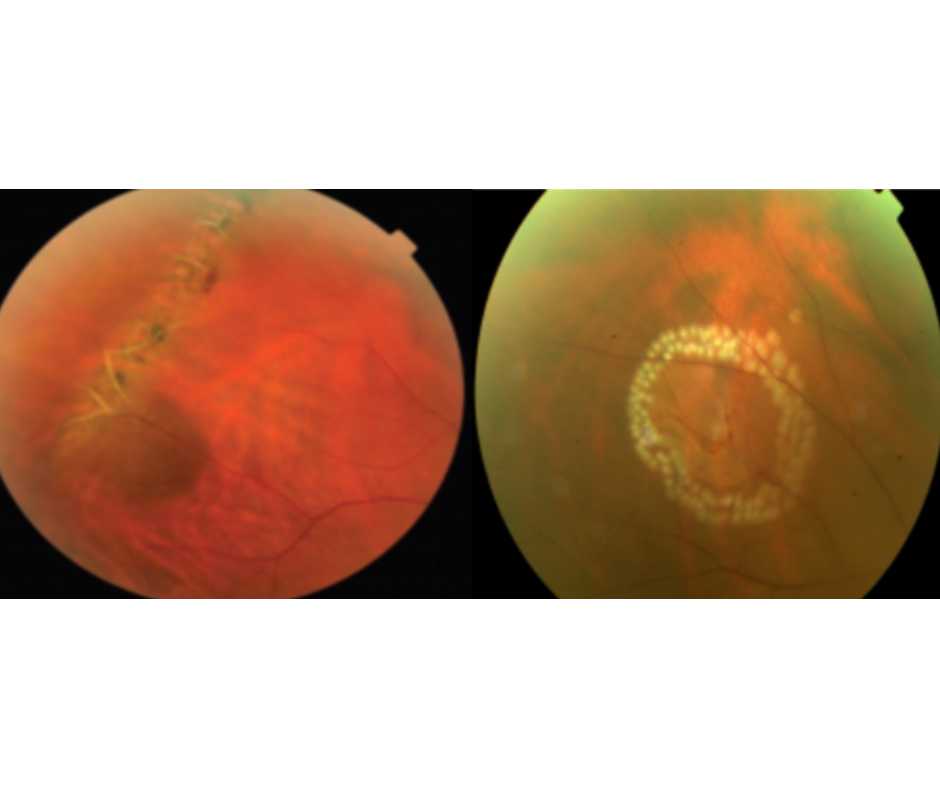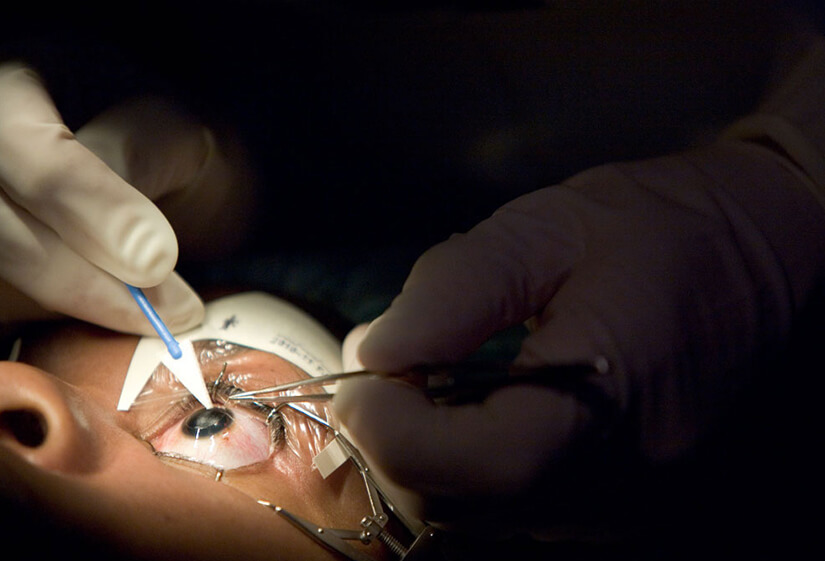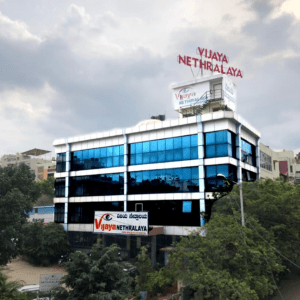Introduction
Laser eye surgery has transformed the lives of millions of people by offering a permanent solution to vision problems like nearsightedness, farsightedness, and astigmatism. However, many potential candidates wonder, “Is laser eye surgery safe?” This article explores the safety, risks, and benefits of laser eye surgery to help you make an informed decision.

What Is Laser Eye Surgery?
Laser eye surgery is a refractive surgery that reshapes the cornea to improve vision. The most common types include:
- In LASIK (Laser-Assisted In Situ Keratomileusis), a surgeon creates a flap in the cornea and reshapes it with a laser.
- PRK (Photorefractive Keratectomy): The outer layer of the cornea is removed, and the corneal tissue is reshaped.
- SMILE (Small Incision Lenticule Extraction): A minimally invasive procedure that reshapes the cornea without a flap.
Is Laser Eye Surgery Safe?
The short answer is yes—laser eye surgery is generally safe. The FDA (Food and Drug Administration) has approved it, and it boasts a high success rate. Like any surgical procedure, it carries potential risks.
How Safe Is Laser Eye Surgery?
- Studies show that over 96% of LASIK patients achieve 20/20 vision or better.
- The procedure has been performed for over 30 years, with continuous advancements improving safety and outcomes.
- Complications are uncommon, affecting fewer than 1% of patients.
Who Is a Good Candidate for Laser Eye Surgery?
Laser eye surgery is not for everyone. Ideal candidates include:
- Individuals over 18 years old
- People with stable vision for at least a year
- Those with healthy corneas
- Individuals without eye diseases like glaucoma or severe dry eye syndrome
Potential Risks and Side Effects
While the surgery is generally safe, some risks include:
1. Dry Eyes
- Temporary dryness is common after surgery but usually resolves within a few months.
- Artificial tears or prescription eye drops can help.
2. Night Vision Issues
- Some individuals may notice glare, halos, or starburst patterns around lights during nighttime.
- This typically improves over time.
3. Under- or Over-Correction
- In some cases, vision may still require minor correction with glasses or a second procedure.
4. Flap Complications (LASIK-Specific)
- The corneal flap created during LASIK can sometimes move or wrinkle, affecting vision.
- Following post-surgery care minimizes this risk.
5. Infection and Inflammation
- While rare, infections can occur if proper hygiene and aftercare are not followed.
Benefits of Laser Eye Surgery
1. Immediate Results
- Most patients experience improved vision within 24 hours.
2. Permanent Vision Correction
- Once healed, results are long-lasting.
- Vision may still change due to aging (e.g., presbyopia), but the correction remains stable.
3. Freedom from Glasses and Contacts
- No more hassle of cleaning, maintaining, or replacing glasses and contact lenses.
4. Quick and Painless Procedure
- The surgery takes only 10–15 minutes per eye.
- Numbing drops eliminate pain.
5. High Satisfaction Rate
- Over 95% of patients report satisfaction with their results.
Recovery and Aftercare
1. Immediate Post-Surgery Care
- Rest for the first 24 hours.
- Avoid rubbing your eyes.
- Use the recommended eye drops to help prevent infection and reduce inflammation.
2. First Few Weeks
- Refrain from swimming, using saunas, or hot tubs for at least two weeks.
- Protect eyes from dust, wind, and direct sunlight.
3. Long-Term Care
- Attend follow-up visits as scheduled.
- Wear sunglasses to protect against UV rays.
- Maintain good eye hygiene.
How to Choose the Right Surgeon?
The success of laser eye surgery largely depends on the experience and expertise of the surgeon. Consider the following:
- Board certification and credentials
- Experience in performing laser eye surgery
- Technology used in the procedure
- Patient reviews and testimonials
Alternatives to Laser Eye Surgery
For those who are not suitable candidates for laser eye surgery, alternative options include:
- Implantable Collamer Lenses (ICLs): A lens is implanted inside the eye.
- Refractive Lens Exchange (RLE): The natural lens is replaced with an artificial one.
- Orthokeratology (Ortho-K): Special contact lenses reshape the cornea overnight.
Cost of Laser Eye Surgery
Laser eye surgery costs vary based on factors such as location, surgeon expertise, and technology used. The price typically ranges from $2,000 to $4,000 per eye. While most insurance plans do not cover it, financing options are available at many clinics.
Common Myths About Laser Eye Surgery
1. “Laser Eye Surgery Is Painful”
- Fact: The procedure is virtually painless due to numbing eye drops.
2. “The Laser Can Burn My Eye”
- Fact: The laser is highly controlled and does not burn any tissue.
3. “Results Don’t Last”
- Fact: The correction is permanent unless affected by age-related changes.
4. “It’s Only for Young People”
- Fact: Many people in their 40s and 50s safely undergo the procedure.
Final Verdict: Is Laser Eye Surgery Safe?
Yes, laser eye surgery is a safe and effective vision correction procedure for most people. With advanced technology, experienced surgeons, and proper post-care, the risks are minimal, and the benefits are significant. If you’re considering the procedure, consult with an eye specialist to determine if you’re a suitable candidate.
Conclusion
Laser eye surgery has helped millions of people achieve clear, glasses-free vision. While there are risks, they are minimal compared to the high success rate and life-changing benefits. By choosing a qualified surgeon and following post-operative care, you can ensure a safe and successful outcome. If you’re tired of relying on glasses or contacts, it may be time to explore whether laser eye surgery is right for you.
Author Details:
Dr. Sushruth Appajigowda holds a prominent position as a Cornea, Cataract, Glaucoma, and LASIK Surgeon in Bangalore. He serves as the chief Cataract and Refractive surgeon at Vijaya Nethralaya Eye Hospital, Nagarbhavi Bangalore. Renowned as one of the finest LASIK surgeons nationwide, he brings with him over 12+ years of experience across multiple LASIK platforms, including ZEISS, ALCON, SCHWIND, AMO, and Bausch and Lomb. Having successfully conducted over 5000 LASIK procedures, Dr. Sushruth holds the title of a Certified Refractive Surgeon and a Fellow of the All India Collegium Of Ophthalmology. Furthermore, he stands as a distinguished speaker at various National and International Forums, using his expertise to guide you in selecting the most suitable procedure based on your health requirements.

http://vijayanethralaya.com/link-in-bio/
FAQ:
1. How long does laser eye surgery take?
The actual procedure takes about 10–15 minutes per eye, with the laser itself being used for only a few seconds.
2. Is laser eye surgery painful?
No, the procedure is painless due to numbing drops. Some discomfort may be experienced during recovery.
3. Can laser eye surgery correct all vision problems?
It corrects nearsightedness, farsightedness, and astigmatism, but not conditions like presbyopia or cataracts.
4. Are the results of laser eye surgery permanent?
Yes, but age-related vision changes may still occur over time.
5. What happens if I blink during the procedure?
A special eye-tracking system ensures that any movement is accounted for, preventing errors.
6. Does insurance cover laser eye surgery?
Most insurance plans do not cover it as it is considered an elective procedure.
7. What if my vision isn’t perfect after surgery?
Enhancement procedures or minor prescription glasses may be needed in rare cases.












